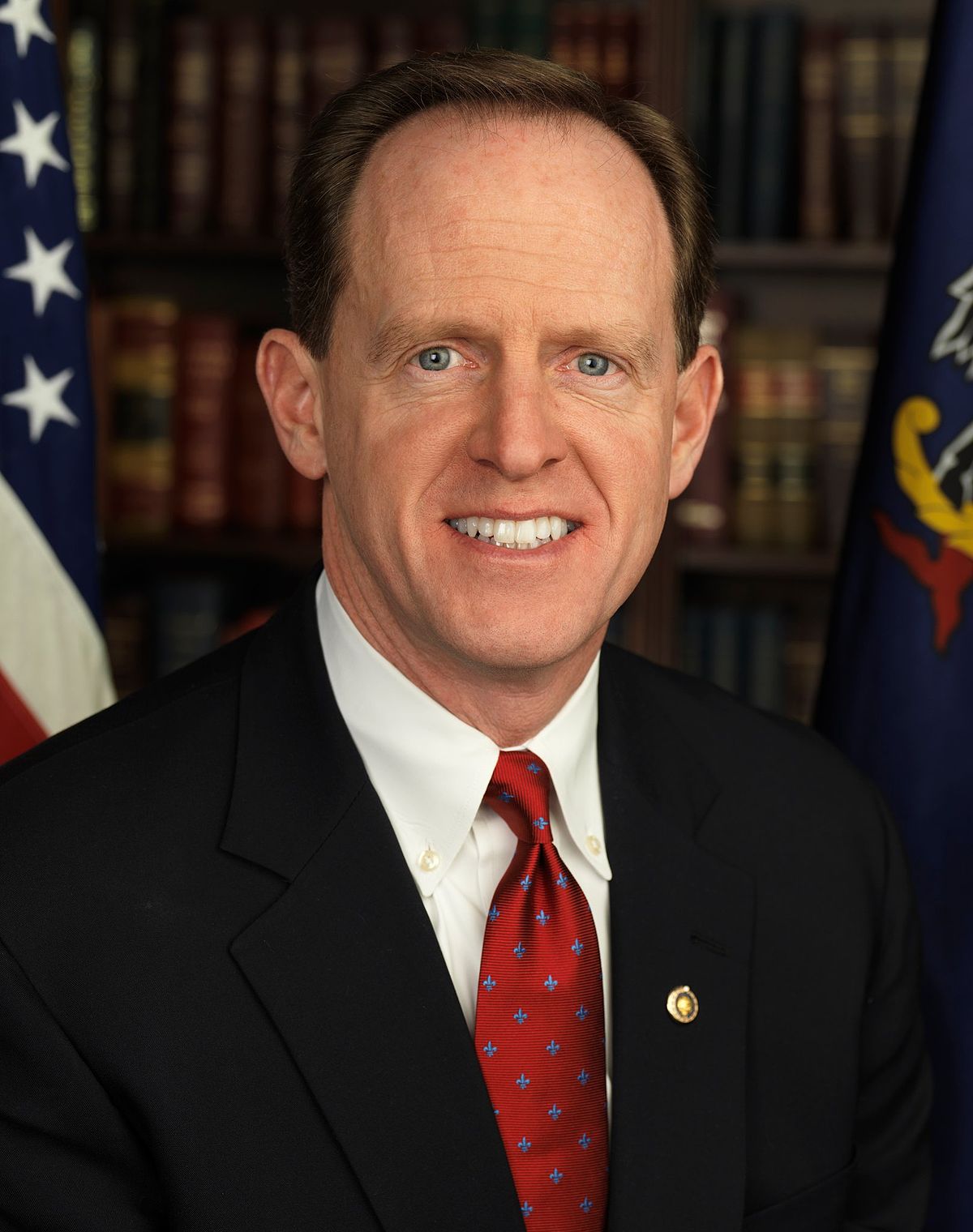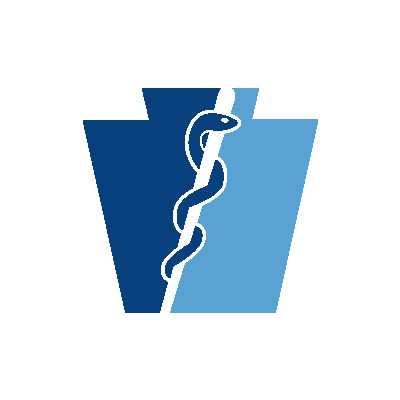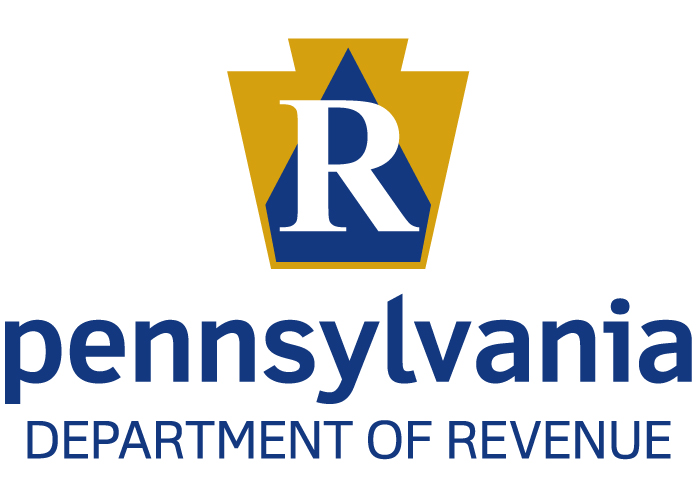Senator Doug Mastriano weighs in on reports of Sec. Boockvar resignation
PA Senate Democrats Introduce legislation to get justice for adult victims of childhood sexual abuse
(Harrisburg, Pa.) — Pennsylvania Senate Democrats will introduce legislation to statutorily create a two-year window for survivors of sexual abuse to seek justice on claims that previously would have been time barred.
This legislative solution is intended to replace the constitutional amendment process, which has been inadvertently voided by the Department of State. To amend Pennsylvania’s constitution, a bill must pass in identical form in two consecutive legislative sessions. After each passage, the bill must be advertised and after the second passage, it goes to voters for their approval.
A constitutional amendment to open the two-year window for sexual abuse survivors passed in the previous session, but the Department of State failed to advertise it and thus the lengthy process would have to start over again.
The Senate Democrats do not believe that survivors should have to wait any longer for justice. Statutory windows to justice have been upheld constitutionally in other states, and the caucus believes that it is acceptable and necessary here in Pennsylvania.
“This is a disappointing setback in the process to create the window to justice,” said Senate Democratic Leader Jay Costa, Jr. “If we continue with the constitutional amendment process, it will be at least another 2 years until the window would be created and that’s simply too long. A legislative solution can create the window immediately, and I’m encouraging bipartisan and bicameral support for the bill that members of our caucus is going to introduce. Survivors need justice now.”
Senators Maria Collett, Katie Muth, Lindsey Williams, and Steve Santarsiero and Tim Kearney will be introducing the bill immediately and have been champions for survivors of sexual assault since they were each elected in 2018.
“To say I am disappointed by this setback is an understatement,” said Senator Collett. “I am devastated on behalf of the victims of childhood sex abuse in my district and across the Commonwealth who have shared with us their heartbreaking stories and entrusted us to bring them long-overdue justice and path to healing. The last thing these victims need is another delay, another slight that makes them feel like no one cares about their pain. Regardless of our politics, religion, age or gender, we all know that the institutions whose failures led to these victims’ trauma need to be held accountable. The legislation my colleagues and I are introducing will correct the mistake made by the Department of State and bring victims across Pennsylvania one step closer to justice.”
“Legislative action is long overdue and with this latest delay waiting another two years is simply unacceptable,” said Senator Muth. “The General Assembly needs to pass a statutory window as soon as possible and finally allow justice and healing for these victims.”
“The time for debating has long passed,” said Senator Santarsiero. “There is no need to amend our State Constitution. The General Assembly has the authority to pass the two-year window to give the victims of child sex abuse what they have long sought and what they so dearly deserve: justice.”
“Victims cannot wait any longer for justice,” said Senator Williams. “We need to pass a statutory window immediately.”
“We led the fight last session to reform Pennsylvania’s statute of limitations, and we will not let up now,” said Senator Kearney. “The process of a constitutional amendment was unnecessary in the first place. Survivors have waited long enough for justice, and they shouldn’t have to wait another two years because of an administrative mistake. We must pass this bill now, because justice delayed is justice denied.”
On behalf of these survivors, the Senate Democrats ask for a swift passage of the new bill and the Governor’s commitment to make its passage a priority.
Top Pa. election official to resign after agency bungled requirement for constitutional amendment
Courtesy TribLive.com
ANGELA COULOUMBIS | SPOTLIGHT PA | Monday, February 1, 2021 11:31 a.m.
HARRISBURG — Pennsylvania’s top election official is expected to resign her position after her agency’s staff discovered a mistake that will block voters from deciding this spring whether to allow survivors of decades-old sexual abuse to sue the perpetrators, according to three sources familiar with the matter.
The Department of State did not advertise, as required, a proposed amendment to the state constitution that would open a two-year window for litigation by survivors of child sexual abuse who have aged out of the statute of limitations for suing. Kathy Boockvar has led the agency since 2019, and oversaw a tense and difficult presidential election in a battleground state last year.
The change was a key recommendation in a blistering 2018 report by a statewide grand jury that investigated the coverup of decades of child sexual abuse in the Catholic Church. It is backed by the state’s community of survivors, who have been pushing for the change for nearly two decades.
The mistake means that the earliest voters can decide whether to create a two-year window is spring of 2023.
Boockvar declined to comment, and a spokesperson also did not return a call. A spokesperson for Democratic Gov. Tom Wolf, who nominated Boockvar to the $145,244 a year position, did not return a call seeking comment.
Under state law, changes to the state constitution require that a proposal be approved by the legislature in two consecutive sessions. At that point, the proposed change appears on the ballot for voters to decide.
The two-year window in the statute of limitations was first approved in the legislature’s 2019-20 session. It was just approved again last month by the House of Representatives and is expected to soon pass the Senate. The goal was to place the question on the spring primary ballot.
Before the question can appear on the ballot, however, Boockvar’s agency is required to advertise the change both times it is approved. Administration officials discovered last week that the Department of State, which oversees elections, did not advertise the proposed ballot question when it was approved in the 2019-20 session.
That means the process has to begin anew, with the legislature approving in the current, 2021-22 session, and again in the 2023-24 session.
This story will be updated.
100% ESSENTIAL: Spotlight PA relies on funding from foundations and readers like you who are committed to accountability journalism that gets results. Become a member today at spotlightpa.org/donate.
Lycoming County Republican Committee rebukes Sen. Toomey in letter
This morning Vince Matteo, Chairman of the Lycoming County Republican Committee made public a letter he sent to Pennsylvania Senator Pat Toomey.
Talkwilliamsport.com has obtained the letter and it is available by clicking Toomey Letter.
Toomey previously announced he is not seeking Senate re-election or interest in running for Governor.
Matteo shared the following on social media moments ago.
“At our meeting of January 14th, the members of the Lycoming County Republican Committee present voted unanimously to send a letter to Senator Pat Toomey expressing our strong disappointment and concern that he would call on President Trump to resign without any due process. I sent the following letter to the Senator on January 18th and emailed it on January 19th. I am making the letter public now because enough time has past and he should have seen it by now and while I have not heard from the Senator, I did hear from a staff member that the email was received (It was not an automatically generated reply). If I do hear from the Senator I will publish it here as well.” (The letter was sent on LCRC letterhead)
The full transcript of the letter is listed below.
January 19, 2021
Patrick Toomey
United States Senator
248 Russell Senate Office Building
Washington, DC 20510
Dear Senator Toomey:
I am writing on behalf of the members of the Lycoming County Republican Committee. At our meeting of January 14, 2021 the members present voted unanimously to express to you our sincere disappointment and concern in your call for President Donald Trump to resign following the horrible action taken by rioters at the Capitol Building. We firmly believe your actions were not in the best interests of Pennsylvania or the United States. It was also not in the best interests of bringing our nation together.
We were further dismayed that you would run to CNN; the network that spent four years continually undermining the President and pushing the false Russian collusion narrative. This betrayal by you is unexplainable and inexcusable and, quite frankly, had an air of “revenge” unbecoming your office. While it is clear you never fully supported President Trump, we expect more from our Senator.
Finally, you now claim if an Impeachment trial is held you will review the evidence to determine how you will vote. It is hard to believe that you could judge fairly since you already played judge and jury when you called on President Trump to resign. Your obvious bias against the President may have disqualified you in the Impeachment trial.
Senator, you owe President Trump and the people of Pennsylvania an apology.
Sincerely,
Vincent J. Matteo
Chairman
Lycoming County Republican Committee
cc: Lycoming County Republican Committee
Congressman Keller urges President Biden to reconsider attack against America’s energy industry
Washington, D.C. – Today members of the House Energy Action Team—who represent districts with significant energy infrastructure—sent a letter calling on President Biden to reverse his shortsighted orders dismantling domestic energy production.
The letter highlights the important role that America’s energy industry plays in shaping national security, securing a leadership position in the international energy market, ending global energy poverty, and supporting rural economies and critical infrastructure. The letter also notes that President Biden’s actions to impede years of growth in the energy sector will eliminate millions of jobs, make the United States less secure, and stifle critical innovations in the industry.
On the letter, Congressman Keller made the following statement:
“It took President Biden only 48 hours in office to rejoin the Paris Climate Accords, kill the Keystone XL pipeline, and ban drilling on federal lands—effectively wiping out four years of progress in America’s energy industry. As a someone who was born in—and campaigned on being from—northeastern Pennsylvania, President Biden should have a clear understanding of just how important good-paying energy jobs are for millions of rural Americans.
“The energy production that comes out of Pennsylvania’s 12th District is critically important in providing our nation with family-sustaining wages and affordable energy. Unless action is taken to reverse course, our energy industry will experience long-term hardships that will negatively impact our economy, national security, and the future of innovation. I urge President Biden to reconsider these harmful actions.”
The full letter is available by clicking HEAT Letter PDF.
Lycoming basketball, wrestling schedules released
WILLIAMSPORT, Pa. – The Lycoming College basketball and wrestling teams will return to action during the second week of February, as the Middle Atlantic Conference (MAC) has released its first set of schedules for its return to competition for the 2020-21 season on Tuesday morning, Jan. 26.
All Lycoming athletic programs will follow the NCAA’s Resocialization of Collegiate Sport: Developing Standards for Practice and Competition during the spring semester.
Men’s and women’s basketball will return to play on Thursday, Feb. 11, along with a total of 14 women’s teams and 13 men’s teams in the conference that have opted-in for a five-week regular season with a championship week to conclude play.
Both basketball teams will have a schedule structured with two-games a week on Thursdays and Fridays for five weeks from Feb.11 to March 12, with the men having one off week in the middle of the season. The week of March 15-21 has been designated for a championship week, however the format is to be determined and will be evaluated during the regular-season.
All games, unless otherwise noted, will begin at 7 p.m.
Lycoming wrestling will get back into action on Feb. 13, with a 1 p.m. dual meet with Wilkes, before heading to the Colonels for a pair of duals on Feb. 14 and Feb. 20. The three duals will help Lycoming meet the requirement to qualify for the postseason, which will start with the NCAA Regional.
Live streams and live stats will be available for all home events.
As the season progresses, you can stay up-to-date with scheduling changes by checking lycomingathletics.com.
The Lycoming swimming season is slated to start in early March, potentially culminating with a MAC Championship in mid-April. Further information on the swimming schedule will be announced at a later date.
Information pertaining to the College’s fall and spring sports, including cross country, football, soccer, volleyball, golf, lacrosse, softball and tennis will be announced at a later date.
DOH: Prevention, Diagnosis, Treatment and Response are Keys to Decreasing New Cases of HIV
Harrisburg, PA – Department of Health Secretary Dr. Rachel Levine today highlighted the importance of routine HIV testing for Pennsylvanians who are sexually active, as nearly 40 percent of new HIV infections are transmitted by people who do not know they have the virus, and emphasized treatment as a prevention tool to decrease the prevalence of HIV.
“Early detection and treatment of HIV can control the virus and make it undetectable, leading to a person living a long, healthy life,” Dr. Levine said. “The latest science shows that people living with HIV who take HIV medication as prescribed, and achieve and maintain an undetectable viral load, have no risk of sexually transmitting the virus to an HIV-negative partner. We encourage all Pennsylvanians to know the facts about HIV so they can effectively decrease the stigma surrounding this virus and ultimately reduce the number of new HIV cases in the state.”
There is no cure for HIV, which is why it is so important to get tested for the virus. It is recommended that everyone between the ages of 13 and 64 get tested for HIV at least once as part of routine health care. HIV attacks the body’s immune system so it can no longer fight off infections. If left untreated, a person can develop other serious infections or infection-related cancers. These infections can lead a person to develop AIDS, the most severe and last phase of HIV infection. Without treatment, people with AIDS typically survive about three years.
For individuals who do not have HIV but may be at high risk for acquiring it, there is a once-daily HIV prevention medication called pre-exposure prophylaxis or PrEP. Anyone can get a free and confidential HIV screening at any health department-supported testing site.
The U.S. Department of Health and Human Services (HHS) has launched Ending the HIV Epidemic: A Plan for America. The initiative aims to reduce new HIV infections in the U.S. by 90 percent by 2030. Ending the HIV Epidemic leverages critical scientific advances in HIV prevention, diagnosis, treatment, and outbreak response by coordinating the highly successful programs, resources, and infrastructure of many HHS agencies and offices and providing a targeted infusion of new resources and support to the jurisdictions most heavily impacted.
For more information on getting tested for HIV, visit the Department of Health’s website at www.health.pa.gov or follow us on Facebook and Twitter.
DOH Asks Pennsylvanians for Feedback on State Health Assessment, One Week Left to Comment
Harrisburg, PA – Secretary of Health Dr. Rachel Levine today reminded residents that there is one week left to comment on the department’s State Health Assessment (SHA), which was created based on the health of Pennsylvanians and will help improve overall health for everyone.
“The opportunity to live a healthy life is a fundamental human right, which is why it is essential that we work to help everyone achieve their healthiest lives,” Dr. Levine said. “The SHA is a comprehensive health assessment that looks at the current health status of Pennsylvanians and is developed using a number of different processes, including community engagement. I encourage every resident to take the time to review our assessment so we can work to develop recommendations regarding public health policy, processes and interventions.”
This state health assessment reviews a broad range of indicators of health, conditions to describe health throughout Pennsylvania, and the factors that contribute to disparate health outcomes. This report explores social determinants of health, health equity, and eight health themes, including:
- Access to Care;
- Substance Use;
- Chronic Diseases;
- Mental Health;
- Maternal and Infant Health;
- Injury and Violence;
- Immunizations and Infectious Diseases; and
- Environmental Health.
The assessment is the first in a series of steps to improve the health of Pennsylvanians. This report is intended to be used to create discussion, promote ongoing and expanded data analysis, support local health improvement interventions, and inform the next Healthy Pennsylvania Partnership State Health Improvement Plan.
The State Health Improvement Plan will use these findings to collaboratively select priority health issues and develop intervention strategies to create change in Pennsylvania.
“No single person or organization can address all the health and health equity concerns described in this assessment,” Dr. Levine said. “However, working with partners and addressing equitable and upstream needs, will lead to necessary change.”
Pennsylvania residents are encouraged review this new assessment and provide feedback through this linked survey by December 7, 2020.
For any questions about the assessment, please contact RA-SHA@pa.gov. For more information on health equity or social determinants of health, visit the Department of Health’s website at www.health.pa.gov or follow us on Facebook and Twitter.
Wolf Administration Expands Testing Sites Across the Commonwealth
Harrisburg, PA – Governor Tom Wolf and Director of Testing and Contact Tracing Michael Huff today announced the extension of the Department of Health’s contract with AMI Expeditionary Healthcare (AMI) to provide COVID-19 testing in five regions across Pennsylvania to help contain local spread of COVID-19.
“Every day COVID continues to spread in the commonwealth, every day our numbers continue to rise, and that puts our health care system and our health care workers at greater risk,” Gov. Wolf said. “To help stop the spread, we are announcing a new testing strategy in the commonwealth, one that will help improve access to testing for Pennsylvanians in every region of the state.”
Over the next 12 weeks, five strike teams will provide regional testing for 61 counties. The six counties not receiving testing from AMI have county health departments providing other means of COVID-19 testing.
“We have seen a rapid increase of positive case counts reaching record-high levels, which gives us significant cause for concern,” Michael Huff said. “AMI has been a significant partner to the Department of Health by providing pop-up testing in counties with a high positivity-rate and other factors contributing to outbreaks of COVID-19 across the commonwealth.
“These testing sites are open to anyone who feels they need a test. It is important that even people with no symptoms who test positive isolate to stop the spread of COVID-19.”
The initial contract with AMI had two strike teams to provide testing in two different counties simultaneously. AMI deployed to:
- Centre county, testing 2,492 patients total;
- Columbia county, testing 1,068 patients total;
- Indiana county, testing 566 patients total;
- Berks county, testing 3,354 patients total;
- Northumberland county, testing 639 patients total;
- Lebanon county, testing 908 patients total;
- Huntingdon county, testing 1,396 patients total;
- Westmoreland county, testing 916 patients total;
- Blair county, testing 3,820 patients total;
- Bradford county, testing 1,513 patients total; and
- Lackawanna county, testing 1,856 patients total.
The department decided to deploy testing based on the total number of confirmed cases per 100,000 people in a county in the past 14 days as well as where outbreaks were happening, county population, and other metrics. The initial AMI testing contract and the extension were funded by the ELC Enhancing Detection grant.
The Department of Health believes that increased testing will assist in determining the prevalence of the virus and assist the counties in moving forward. Counties of concern, identified as those with percent positives above 5 percent, can be found on the Early Warning Monitoring Dashboard. Each county is being monitored as the state continues to examine all available data.
Beginning Wednesday, December 2, drive-thru and indoor walk-in testing clinics will be held to contain the recent rapid increase in COVID-19 cases in the following five counties:
- Bedford;
- Mifflin;
- Tioga; and
- Northampton.
Testing will be available daily from 9:00 AM to 6:00 PM starting Wednesday, December 2 through Sunday, December 6.
Beginning Friday, December 4, drive-thru and indoor walk-in testing clinics will be held in Butler county. Testing will be available daily from 9:00 AM to 6:00 PM through Tuesday, December 8.
The testing site addresses are:
- Butler County: Michelle Krill Field, 100 Pullman Park Pl., Butler, PA, 16001;
- Bedford County: Bedford High School parking lot, 330 West John St., Bedford, PA, 15522;
- Mifflin County: Pennsylvania State Fire Academy, 1150 Riverside Drive, Lewistown, PA, 17044;
- Tioga County: North Penn Mansfield High School, 73 W. Wellsboro St., Mansfield, PA, 16933; and
- Northampton County: William Penn Highway Park & Ride, Emrick Blvd., Easton, PA, 18045.
Up to 450 patients can be tested per day at each location. Mid-nasal passage swab PCR tests will be performed. Testing is on a first-come, first-serve basis and is completely free to all patients. Patients must be ages three and older and are not required to show symptoms of COVID-19 in order to be tested. No appointment is necessary. Patients are encouraged to bring a photo-ID or insurance card. Registration will also be completed on-site. The turnaround time for testing results is two to seven days after testing.
Individuals who are tested should self-quarantine while they await test results. Individuals who live with other people should self-quarantine in a private room and use a private bathroom if possible. Others living in the home with the individual awaiting test results should also stay at home. The department has additional instructions for individuals waiting for a COVID-19 test result. Individuals who test positive will receive a phone call from AMI while individuals who test negative will receive a secured-PDF emailed to them from AMI.
For the latest information for individuals, families, businesses and schools, visit “Responding to COVID-19” on pa.gov.
The Wolf Administration stresses the role Pennsylvanians play in helping to reduce the spread of COVID-19:
- Wash your hands with soap and water for at least 20 seconds or use hand sanitizer if soap and water are not available.
- Cover any coughs or sneezes with your elbow, not your hands.
- Clean surfaces frequently.
- Stay home to avoid spreading COVID-19, especially if you are unwell.
- If you must go out, you are required to wear a mask when in a business or where it is difficult to maintain proper social distancing.
- Download the COVID Alert PA app and make your phone part of the fight. The free app can be found in the Google Play Store and the Apple App Store by searching for “covid alert pa”.
Revenue Department Releases November 2020 Collections
Harrisburg, PA — Pennsylvania collected $2.3 billion in General Fund revenue in November, Revenue Secretary Dan Hassell reported today. Fiscal year-to-date General Fund collections total $14.8 billion.
November collection data does not include a comparison against anticipated amounts because monthly revenue estimates for the fiscal year are not yet finalized. As part of the state budget recently signed by Gov. Tom Wolf, an amendment to the Fiscal Code requires the Department of Revenue to revise revenue estimates for the 2020-21 Fiscal Year. Work to publish those monthly estimates is ongoing.
Below is an overview of November revenue collections:
Sales tax receipts totaled $984.3 million in November.
Personal income tax (PIT) revenue in November was $683.9 million.
Corporation tax revenue was $140.9 million for November.
General Fund revenue figures for November included $94.6 million in inheritance tax and $55.1 million in realty transfer tax.
Other General Fund revenue, including cigarette, malt beverage, liquor and gaming taxes totaled $176.8 million for the month.
Non-tax revenue totaled $203.0 million for the month.
In addition to the General Fund collections, the Motor License Fund received $257.7 million for the month, which includes the commonly known gas and diesel taxes, as well as other license, fine and fee revenues.










